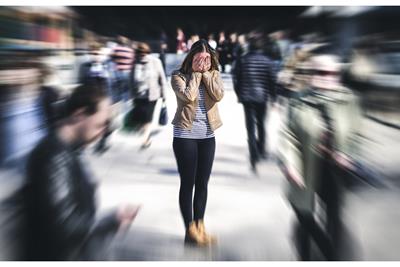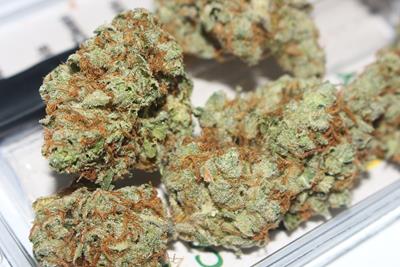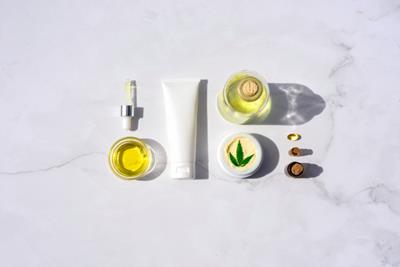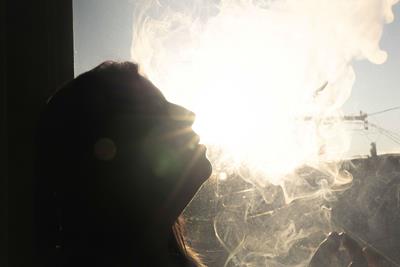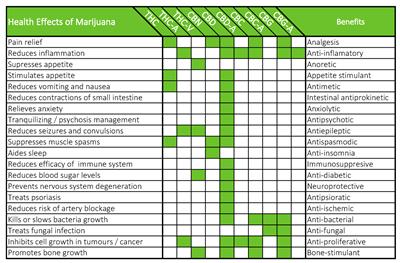
Saturday March 9, 2019
By Andrew Ward
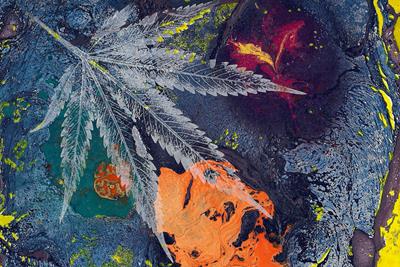 Health/Science
Health/Science
The debate around cannabis’ effect on our creativity has gone on for ages. While it may seem that the community appears to accept the notion mostly, that may not actually be the case. Studies are low in quantity, but initial data shows that what we think occurs and what actually happens may not align. Yet, the debate continues as creative people from across the spectrum voice their support and detraction for cannabis as a creative stimulator.
Does marijuana make you more creative? Or, is it all an illusion? Depending on the sources, the answer is likely to vary.
Not Enough Data to Make a Determination
At this time, a common theme in cannabis is a lack of research and, thus, conclusive answers. Due to legal limitations, research has mainly been stymied until recently. We’ll likely have to wait years to get any conclusive data on most topics. This includes the effects of cannabis on our creative process. However, some research has been performed, providing an inconclusive, yet insightful, glimpse into the subject.
A 2015 study examined the effects of highly potent cannabis and its impact on our creative thinking. Researchers administered a low and high dose of vaporized cannabis, as well as a placebo, to 18 participants. Each participant performed creative tasks to test their divergent and convergent thinking. The results found that participants given the highly potent cannabis performed "significantly worse" on divergent thinking tasks. Additionally, low potency cannabis appeared not to spark creative thinking. It’s important to understand that the researchers noted that their findings allow for only speculation at this time.

A 2017 study found that previously sober smokers can outperform sober individuals at some tasks. However, these tasks required little creative thinking. Using a larger sample of 979 undergraduate students, the participants self-reported their creative levels as well as performing divergent and convergent thinking tasks. Self-reporting can seem dubious, and the results proved opposite to many claims. When performing tasks, the study found that these same users "demonstrated superior convergent thinking ability to non-users." However, when it came to divergent, creative thinking, the levels of creativity did not vary much from sober users.
Anecdotal Evidence Also Inconclusive
While it may seem that the cannabis community appears to be in unison on the subject, many of reports push back on cannabis’ influence on creativity. Those that rebuke the claim often cite feeling lazy and having their brains go to mush, as was the case for one Redditor's friend who'd be reduced to yelling "baby meat!" while stoned. One person’s response to the baby meat situation summed up why these adverse outcomes are viable counterpoints to those claiming its positive effects. The now deleted user explained that "It makes it easier to make associations between ostensibly unrelated ideas and concepts. This can turn out to be creative or inane." Meanwhile, others pushed back that cannabis lowers their comfort levels making them okay to share ideas they otherwise wouldn't.
These outcomes have led some to believe that cannabis isn’t a creative stimulator. While possibly true, we should consider what is actually being measured here. Creativity is a vast expanse of avenues and options. While writing is creative to some, cooking is where others excel. Some are creative visionaries while others find solutions for office and city layouts. Creatives are a diverse group. It would take a massive undertaking to accurately gauge the effects of cannabis on the creativity of such an assortment of talents and interests.

With such diversity in creative endeavors and solutions, it may take quite a while to assess the impact cannabis has on our creativity accurately. However, early findings do appear to suggest that when not self-reporting, participants tend to do about the same on cannabis as they would sober. This doesn’t imply that people should stop consuming pot for creative sparks. It is simply best to use cannabis in moderation regardless. Just like alcohol and even emotional states, creatives cannot rely on these crutches to fuel their creativity. Not only is it unsustainable in the long-term, but it can also even be harmful to one’s health. The creativity has to come from within, no matter how cliché that may sound.
Instead of using pot for creativity, go to a museum, listen to music, get into nature. Change up your routine. If all else fails, hop on the Internet and find creative folks posting their art, recipes or solutions. In the end, the choice comes down to the individual. Nonetheless, consider holding off on the cannabis until after you’re done creating. You may find yourself appreciating your creations even more that way.
Does Cannabis Make Me Creative? Find Out For Yourself!
Enough self-reports are worthy enough for most to embark on some responsible exploration on their own. If you find yourself in this camp and aren’t sure where to start, consider some of the top choices. Green Crack is often regarded as a creative-boosting strain that also provides an upbeat energy burst that is good for daytime creatives. Headband is another sativa dominant hybrid to consider, if you can handle its high potency and want to challenge the findings of the study previously mentioned. Those looking for an indica dominant choice may find benefits in LSD – the strain that is. We can't vouch for the other stuff, though we've heard things... Happy consuming!
Do you feel cannabis makes you more creative? Share your experiences in the comments below!
Photo Credit: Jurassic Blueberries (license)



